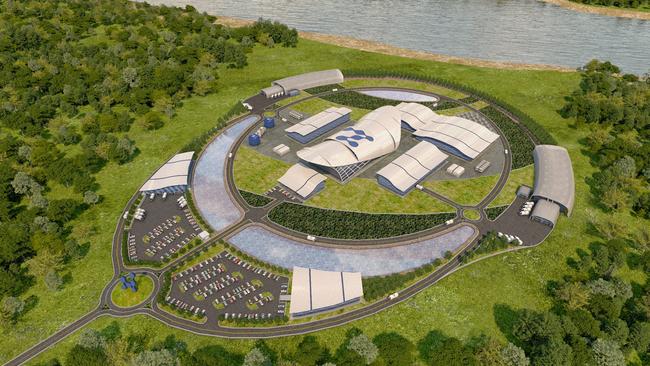
Monique Ryan, now the federal member for Kooyong, proposed that Australia legislate for a 60 per cent reduction in CO2 emissions by 2030, but this would reduce Australia’s annual contribution to carbon emissions to just over two days in a global context.
Contextualising our emissions in a global frame is not an argument for doing nothing to reduce them or for avoiding aspirational targets. It is not an argument for relying on fossil fuels to the exclusion of renewable technologies. But it does help us to be realistic about what we can achieve.
The facts of the matter are that Australians are vulnerable to climate change in our susceptibility to extreme weather events, but we cannot solve climate change through our domestic policies.
Our discussion about energy and climate change also omits the elephant in the room, which is that a large portion of the world lives in energy poverty. Hundreds of millions of people around the world lack access to energy entirely, which has terrible consequences not only for them but for the environment as well.
When the millions of people who live in places such as Malawi, Liberia and Somalia try to cook and heat their homes, they use firewood, manure and crop waste. This creates much more pollution, particularly indoor air pollution, than fossil fuels do.
The World Health Organisation describes indoor air pollution as the “largest single environmental health risk” we face today and estimates that 1.6 million people die from it every year. The deaths are occurring now – not in some abstract future as a result of climate change.
Which raises the serious ethical question: when the millions of people who live in poverty wish to industrialise and develop their communities using coal, oil, and gas, who are we to tell them they shouldn’t? Rich countries dictating the terms on which poor countries develop is just another form of colonialism.
Environmentalists will argue that poor nations can leapfrog coal, oil and gas, and go straight from burning wood for energy to having wind turbines and solar panels. But this idea works better on paper than in practice. Projects that have tried to get renewable energies off the ground in Africa are known for their dismal failure rate.
So what does this mean for Australia? It means we should do our bit and pull our weight when it comes to reducing our emissions. But it also means aggressive targets such as those proposed by the teal independents are more about virtue signalling than any tangible global benefit.
If we really want to make a difference to reducing global CO2 emissions, then we should be participating in what Bill Gates describes as the “fastest and clearest course to becoming carbon negative”, which is the development of small modular nuclear power reactors.
If Australia participated in developing such reactors, we not only could provide the world with our tech but we also could provide our uranium, contributing to a prosperous clean energy future while also becoming rich in the process.
Surprisingly, however, teal independent Zali Steggall has opposed lifting the moratorium on developing small modular nuclear reactors, citing safety and pollution concerns.
While disappointing, this is a typical move for environmentalists, who tend to view solutions that are modern and forward-thinking as suspicious, in contrast with those that appear “natural” and therefore harm-free. But this is fallacious thinking.
Solar panels have to be disposed of when they reach their use-by date, and they are known to leak toxic heavy metals into our soil. Wind turbines are responsible for killing large numbers of native birds, risking endangered species.
The sad truth is if it were not for environmental activists of the 1960s and ’70s we’d be much closer to being carbon neutral today. Before they cared about global warming and climate change, environmentalists were antinuclear. If they had not successfully campaigned for the closure of nuclear plants across the US and Europe, the world would be less reliant on coal today.
This is true for Australia as well. From the 1950s onwards several nuclear plants were proposed for development but none of them got off the ground because of lack of public support.
In 2006, John Howard as prime minister commissioned a report that concluded that nuclear power was a good option for Australia. This report proposed that the first station could have been built within 10 years, with 25 stations delivered by 2050. This would have provided Australia with a third of our baseload power. Not long after this policy proposal was released, Queensland’s Labor government rushed to pass antinuclear legislation.
If Howard’s policy proposal had not been stymied, we already would have our first nuclear plant in operation in Australia and we would be on track for many more.
When teal independents and Greens slam the Liberal Party for its lack of action on climate change, they ought to remember this. If the Howard government’s push for nuclear energy had not been slapped down before it had a chance to get off the ground, we could have made significant progress towards a clean energy future.




Every four days the world emits the equivalent of Australia’s annual contribution to global CO2 emissions. If Australia were to vanish from the Earth, China would cancel out the subsequent annual reduction in our carbon footprint in just one month.